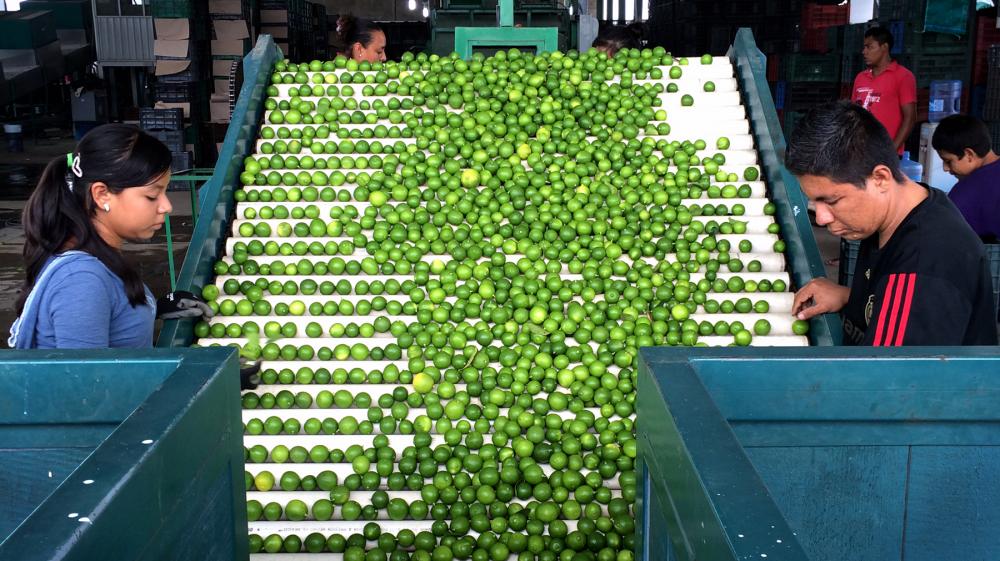If the prices of a margarita or guacamole have been too high for you lately, blame it on a key ingredient of the Mexican treats — the lime. Prices for limes, imported almost exclusively from Mexico, hit record highs this year, and demand remains high. But now the price is dropping and farmers couldn’t be happier.
You can see it firsthand at the outdoor wholesale lime market in Apatzingan, Michoacan. Dozens of buyers stand in the dirt parking lot waiting for beat-up pickup trucks to roll in. The men rush to the backs of the trucks, filled high with crates of limes. Here the round fruit is known as green gold.
Lime buyer Geraldo Fernandez scrambles up the back of the crates and peers over the top. “The trucks barely stop and the limes are sold … they’re selling like hotcakes,” he says in Spanish.
While Mexico’s other lime-producing states were hit hard by bad weather and a fungal outbreak earlier this year, as we’ve reported, the orchards in Michoacan have been flourishing, netting record profits for the state’s farmers.
But with every boom comes the bust. And prices are falling fast.
Better weather and a bountiful spring crop in the state of Veracruz have supplies back to normal.
Fernandez thumbs through another box of limes. He tells the driver he’ll give him 80 pesos — about six bucks for the whole 40-pound box. He says just a month or two ago he was paying these guys as much as $35 a box.
Prices in the U.S. are dropping, too. Last week the U.S. Department of Agriculture said consumers paid on average 30 cents a lime, compared with 90 a few months ago.
Michoacan farmers aren’t complaining about the precipitous price drop, though; most are still enjoying their record profits. But the biggest boon to them is that for the first time in a decade, many say they are no longer at the mercy of Mexico’s ruthless drug cartels.
For more than 10 years, every part of the lime business was controlled by one drug gang or another. The last few seasons have been controlled by the Knights Templar cartel, says buyer and farm manager Efrain Hernandez Vazquez.
“You’d make the money and they would take it, they charged so-called taxes, quotas on everything,” says Hernandez. The drug gang told farmers where and when they could sell their crops and — most important — at what price. He estimates he paid about $2,000 a week, or 10 percent of his sales, to the Knights Templar.
But since a federal police crackdown in the state and the emergence of civilian militias, the cartel has been on the run. Several top leaders have been either killed or arrested, and three mayors and a former governor of Michoacan have been arrested on charges of colluding with organized crime.
Hernandez says now, it’s just pure happiness.
At his farm, about 20 minutes outside Apatzingan, a worker is plowing the fields. Hernandez says he just bought 30 more acres with his profits and will plant Persian limes here — the fat, seedless ones most favored by U.S. consumers.
Hernandez walks over to a line of lush lime trees teeming with Persian limes. He tells me to take in a deep breath and smell the sweetness. They are the best, he says, and jokes, “and they smell like green dollars, don’t they?”
9(MDA3MTA1NDEyMDEyOTkyNTU3NzQ2ZGYwZg004))
